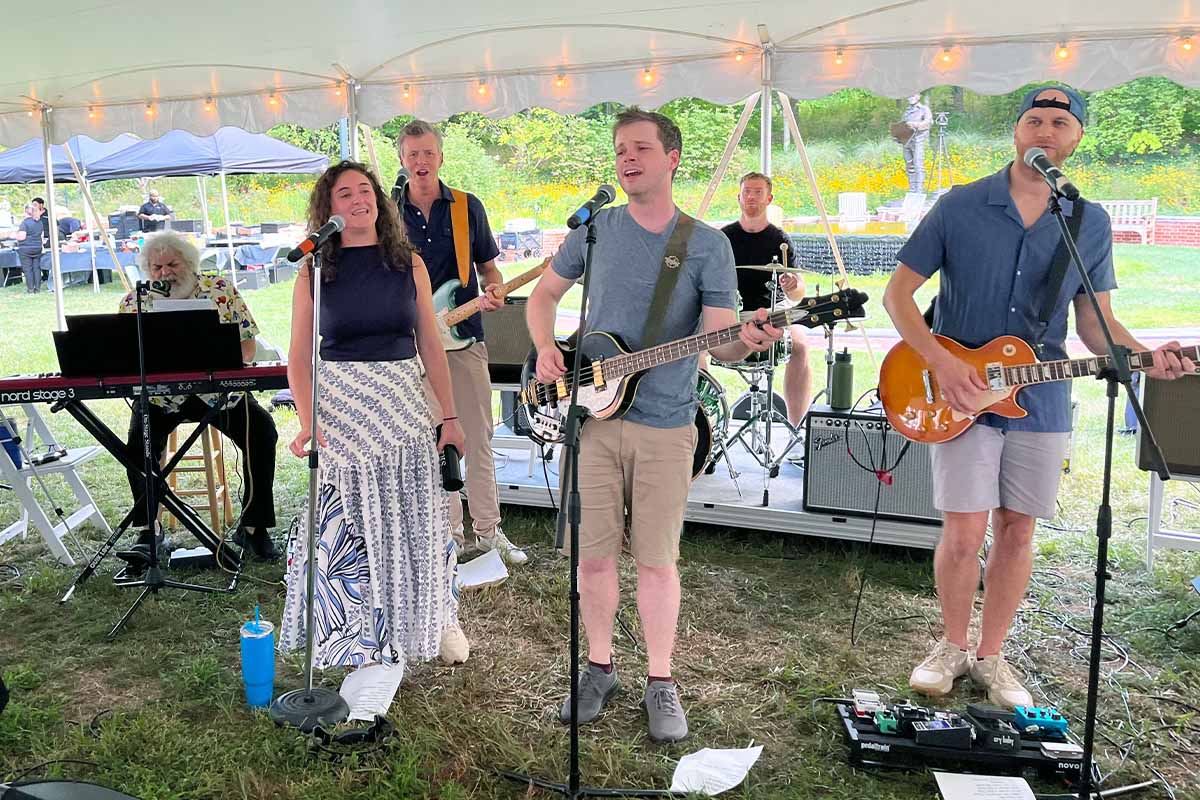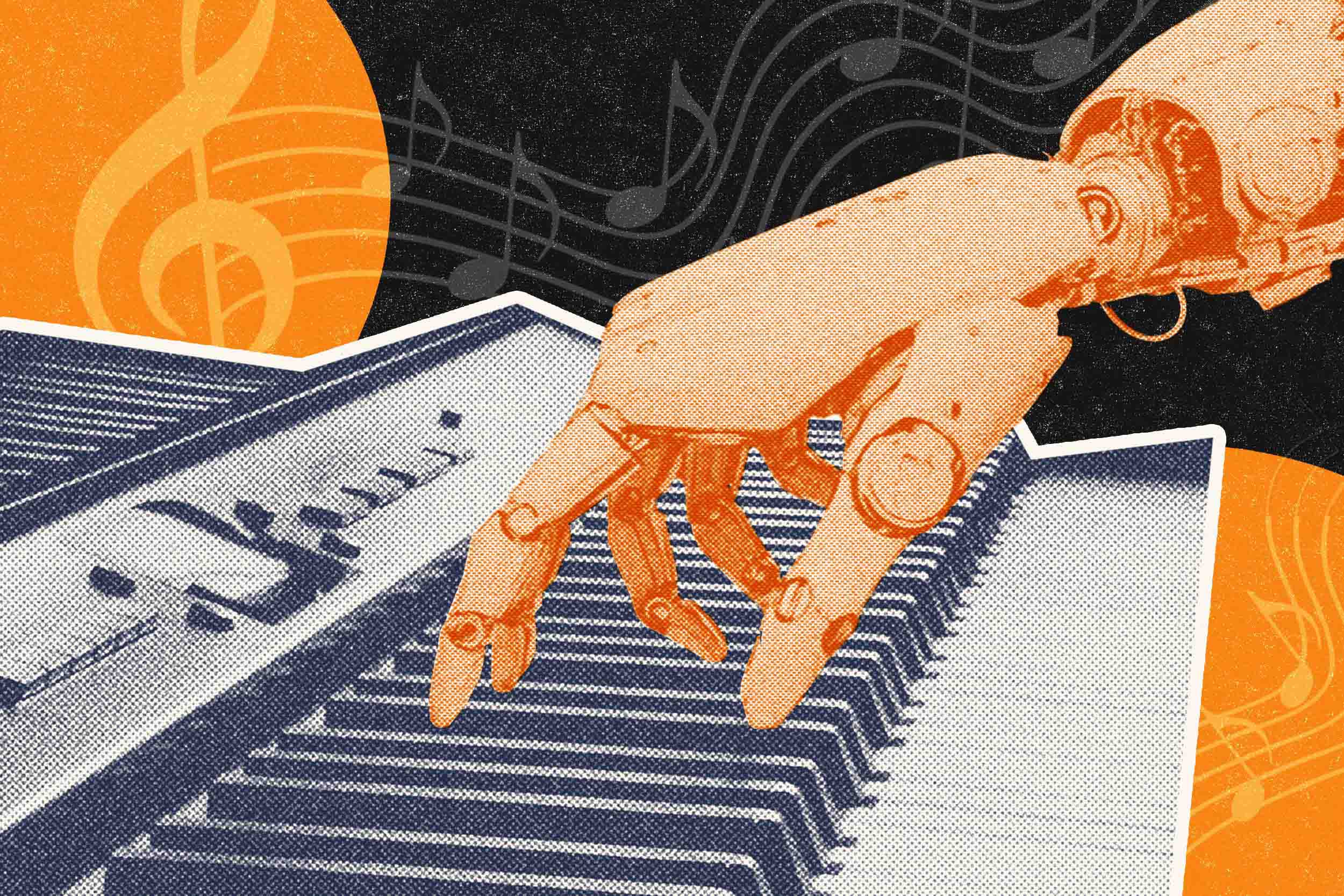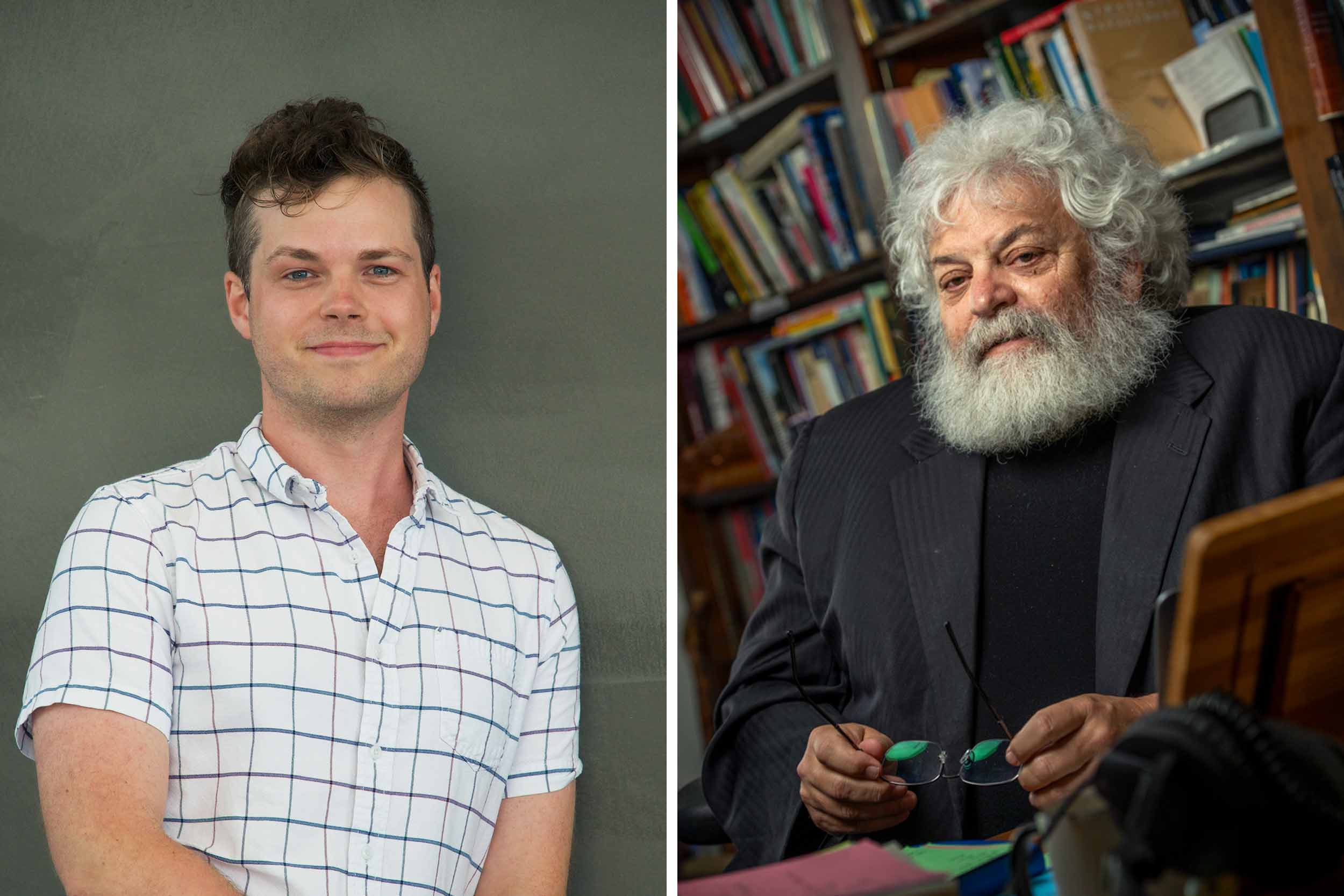Artificial intelligence is everywhere in the music business, whether you recognize it or not. It’s there when you stream – every Spotify recommendation is the product of AI-driven algorithms – and composes music based on its knowledge of previously published works. It’s even breathed new life into long-gone voices of performers like John Lennon.
At the same time, AI music raises concerns about copyright infringement and has fueled a debate about what can be authentically called “music.”

Blues Jam, the Darden School’s own rock ’n’ roll band comprising faculty, staff and alumni, plays a recent gig with professor Ed Freeman on the keyboard, far left, and doctoral student Skyler Clark-Hamel, center, on bass and vocals. (Photo by McGregor McCance, Darden School of Business)
For perspective, UVA Today checked in with two musicians at the University of Virginia’s Darden School of Business.
Ed Freeman, University Professor and Olsson Professor of Business Administration, is a business ethics expert who also composes, arranges and performs music. Some 20 years ago, he founded Blues Jam, a rock and blues band that includes Darden School faculty, students, staff and alumni.
Skyler Clark-Hamel, who earned his master’s degree from the Darden School in 2023 and is a current doctoral degree candidate, holds a music degree from the Berklee College of Music. Before joining academia, he worked as a touring and recording artist, entrepreneur and agent in Nashville. Clark-Hamel plays guitar and is a lead singer in Blues Jam.
Here are their reactions to three provocative thoughts on AI’s influence on music.
Q. Will AI destroy music as we know it?
Freeman: AI will undoubtedly change music, but it won’t destroy it. Making music is part of who we are as humans. There is always room for great music, no matter where it comes from.











